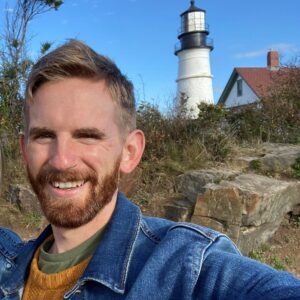
Fiction Discussion Guides
Simply put, fiction has the potential to reveal present realities and imagine possible futures. Through truth-telling, a good story confronts the current systems of power, the unequal material conditions, or the overwhelming circumstances that prevent all life from flourishing. It gives voice to whomever or whatever has been silenced, forgotten, or ignored — the lives of marginalized humans and exploited nonhumans, the values or perspectives that advocate for collective good, or the complex emotions that humans may experience during planetary polycrisis. Fiction can also be a window through which we envision compelling and creative possibilities, whether social, ecological, political, or economic. Imagining what worlds are possible creates the opportunity for us to build towards a better and more just future.
In the summer of 2023, The BTS Center facilitated a three-part Fiction Book Series, intended to offer new ways of engaging with the climate crisis. Tyler Mark Nelson, who co-facilitated the series, has developed a Discussion Guide for each of the books from the series. We offer these to you as resources for facilitating your own book discussion groups centered around living in a climate-changed world. The three guides are for the following books:
- People of the Whale by Linda Hogan
- How Beautiful We Were by Imbolo Mbue
- The Ministry for the Future by Kim Stanley Robinson
Meet Tyler Mark Nelson
 Tyler Mark Nelson is a Program Consultant at The BTS Center, where he contributes his training in ecotheology and lifelong practice of nature mysticism to the Center’s programming. With a strong commitment to ecumenical Christianity and the value of interfaith collaboration, he aims to incorporate themes of prophetic imagination, ecological contemplation, and environmental justice into public dialogue.
Tyler Mark Nelson is a Program Consultant at The BTS Center, where he contributes his training in ecotheology and lifelong practice of nature mysticism to the Center’s programming. With a strong commitment to ecumenical Christianity and the value of interfaith collaboration, he aims to incorporate themes of prophetic imagination, ecological contemplation, and environmental justice into public dialogue.
Now entering his third year of the Master of Divinity (MDiv) degree at Yale Divinity School, Tyler writes often about creatureliness, multispecies flourishing, climate justice, and social critiques of neoliberal capitalism. He graduated from Whitworth University with a B.A. in Theology.
During his prior career in horticulture, Tyler worked with people and plants through roles in human resources, operations management, and organic lavender farming. Tyler and his wife enjoy hiking, gardening, and cooking with their community in New Haven, Connecticut.

